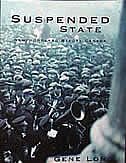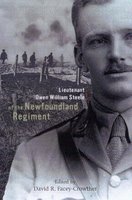 For those who might wish to gain a better understanding of Newfoundland and Labrador, its history and people, following are some suggested readings.
For those who might wish to gain a better understanding of Newfoundland and Labrador, its history and people, following are some suggested readings.There is no particular order to the list and by no means is this first list an exhaustive compilation of basic books. It contains some 20th century history, particularly on the period up to and including confederation with Canada.
Added explanation: ***It would be easy to simply copy a list of every book out there and come up with 30 or more "recommendations". What follows is a list of readable works on specific topics that would give a reader unfamiliar with Newfoundland and Labrador a reliable overview of the place, its people and its history.
You will see the controversies, where they exist, but overall the histories cover the issue thoroughly and professionally. Check Responsible Government Leagues' list and you will find a great many books by anti-Confederates. Anyone wishing to delve into the anti-Confederate movement and its philosophy will be well-served by RGL's list. If one is looking for reliable accounts ,based on solid research, by someone without an axe to grind, then a book like Bren Walsh's More than a poor majority is not the way to go.
Similarly, John Crosbie's No holds barred is a heavily edited book that leaves out much of the detail and in its place substitutes precious little of substance. There is absolutely no discussion of the Atlantic Accord (1985), for example, and in the section on the Upper Churchill, Crosbie's comments are so sparse one would have difficulty appreciating the issues involved let alone his motivation in advocating the public purchase of a major load of debt. Throughout there are too many references to provincial politicians from Newfoundland and Labrador who, in Crosbie's opinion tried too often to "bite the hand that fed them".
Crosbie's book is more self-serving than most memoirs; it is therefore left off the list as is Brian Tobin's ultra-light weight All in good time. Tobin's ghost-written book contains little useful information. It also contains many fundamental errors; Tobin's researcher apparently could not figure out the correct name of people with whom Tobin worked closely. The book is also missing several important events. So bad were the omissions that when the book first appeared in time for the Christmas rush, CBC Radio held a contest for listeners to submit the titles of missing chapters. My entry was "Over the transom and under the door: a brown-envelope apprenticeship with Bill Rowe." Tens of thousands of copies wound up in the remainder bin at five bucks, except on the mainland where the same people that find Royal Canadian Air Farce "humourous" also found Tobin's error riddled cash grab "insightful".***
Over time, I will toss up some additions to this list.
Suggested additions are welcome, although not all will make it.
Newfoundland and Labrador Reading List
 1. Peter Neary, Newfoundland in the North Atlantic World, 1929-1949.
1. Peter Neary, Newfoundland in the North Atlantic World, 1929-1949.From the Indigo blurb:
Tackling an overlooked period of Newfoundland history, Peter Neary examines the Commission of Government in Newfoundland from 1934 to 1949. Summarizing major developments before 1929, Neary recounts the chaos leading to the end of responsible self-government and establishment of the British-appointed commission. He details and evaluates the commission's major policies during hard times in the 1930s, the war boom and post-war adjustment. Newfoundland in the North Atlantic World also evaluates the 1949 decision to join Canada in light of developments during the commission's rule.2. G.M. Story et al., editors, Dictionary of Newfoundland English.
3. Raymond Blake, Canadians at last: Canada integrates Newfoundland as a province.
From the publisher's blurb:
History provides some interesting case studies of what happens when trade barriers come down. Among them is the story told in this book of Newfoundland'Â’s integration into Canada in the aftermath of the province'Â’s 1948 referendum. Raymond B. Blake takes a refreshing approach to this episode in Canadian history, avoiding the old shibboleths of conspiracy and local nationalism, and instead making a down-to-earth study of economic and political events.
Canadians at Last explores the efforts of the many Canadians and Newfoundlanders who tried to make Confederation work. Blake argues that Canada wanted union, to remove any uncertainty in its dealings with Newfoundland over civil aviation, defence, and trade. Newfoundland opted for union largely because Canada'Â’s burgeoning social welfare system promised a more secure existence. Investigating the complex problems they encountered, Blake details changes in trade, fishing, and manufacturing and in the political process in Newfoundland. He also looks at the introduction and impact of social programs, and the terms of the US military presence there. Finally, he demonstrates that by 1957 Newfoundland'Â’s integration into Canada was essentially complete; it was being treated the same as the other provinces, subject to the terms of union.
By beginning with the 1949 Confederation rather than the activities leading up to it, and by thoroughly documenting areas of agreement, contention, and neglect, Blake writes a solid, contemporary history of Newfoundland'Â’s integration into Canada. Virtually the only complete academic treatment of this subject, Canadians at Last offers much basic information that so far has not been made available.
 4. Gene Long, Suspended state. Long, a former New Democrat member of the provincial legislature examines the collapse of responsible government in 1933/34. This a short, accessible account of a subject which continues to be controversial over 60 years later. [Personal note: The cover photo (left) is a famous picture of the public riot at the Colonial Building in 1932. The man wearing the sousaphone at the centre front of the picture is one of my paternal great-grandfathers. Some of his sons, my great-uncles, also played in the Methodist Guards band which provided music at the riot.]
4. Gene Long, Suspended state. Long, a former New Democrat member of the provincial legislature examines the collapse of responsible government in 1933/34. This a short, accessible account of a subject which continues to be controversial over 60 years later. [Personal note: The cover photo (left) is a famous picture of the public riot at the Colonial Building in 1932. The man wearing the sousaphone at the centre front of the picture is one of my paternal great-grandfathers. Some of his sons, my great-uncles, also played in the Methodist Guards band which provided music at the riot.]5. James Hiller and Michael Harrington, editors, Newfoundland National Convention, 1946-1949. In two volumes, this consists of the debates and papers of the national convention that preceded the famous referenda on Newfoundland's political future.
 6. David Facey-Crowther, Lieutenant Owen William Steele of the Newfoundland Regiment. Facey-Crowther, a professor of history at Memorial University has edited the diary of a young infantry officer killed at the Battle of the Somme, 1916. Steele was a member of the Newfoundland Regiment, later the Royal Newfoundland Regiment, the Dominion's military contribution to the allied war effort in the World War, 1914-1918.
6. David Facey-Crowther, Lieutenant Owen William Steele of the Newfoundland Regiment. Facey-Crowther, a professor of history at Memorial University has edited the diary of a young infantry officer killed at the Battle of the Somme, 1916. Steele was a member of the Newfoundland Regiment, later the Royal Newfoundland Regiment, the Dominion's military contribution to the allied war effort in the World War, 1914-1918.This volume includes an introductory essay by Facey-Crowther which places Steele's diary and letters in a wider context.
While the tragedy of the first day of the Somme offensive is widely known, the Great War produced lasting changes in Newfoundland society and politics which reverberate to this day.
7. Claire Hoy, Clyde Wells: a political biography. Until Wells' memoir appears, this remains the only concise book on Wells up to the early 1990s. It suffers from a number of shortcomings but remains a readable introduction to one of the more important political leaders in Newfoundland and Labrador's history. [Spare the e-mails. I am entitled to my bias on this one.] For those interested in the Meech Lake Accord, read Hoy along with Deborah Coyne's Roll of the dice.
8. J.D. [Doug] House. Against the tide: battling for economic renewal in Newfoundland and Labrador. House chaired an economic development commission under Brian Peckford and later headed the Economic Recovery Commission under Clyde Wells.
9. Philip Smith, Brinco: the story of Churchill Falls. More people should read this if for no other reason than to dispel the mythology which has grown up since the provincial government purchased the company in the early 1970s. It remains the only history of the Upper Churchill project to date. Undoubtedly someone will provide more of the story in due course.
----------------
Update I:
10. S.J.R. [Sid] Noel, Politics in Newfoundland. Toronto: University of Toronto Press, 1971. An elderly survey of Newfoundland politics from earliest colonial times to 1971, but still useful.
 11. Ingeborg Marshall. An history and ethnography of the Beothuck. The only reliable account of the history of the aboriginal inhabitants of the island of Newfoundland.
11. Ingeborg Marshall. An history and ethnography of the Beothuck. The only reliable account of the history of the aboriginal inhabitants of the island of Newfoundland.